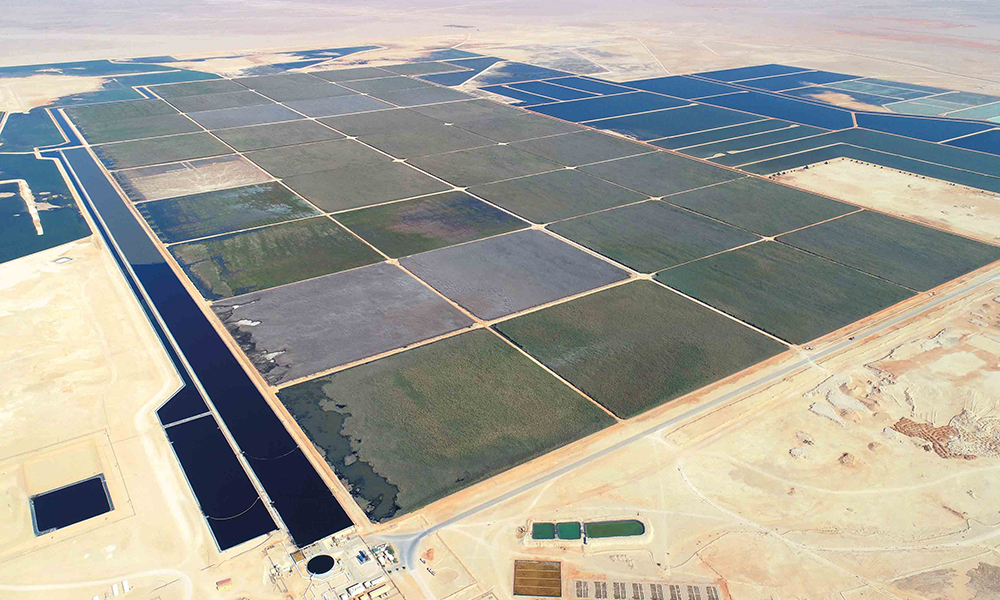Bauer Nimr LLC, the Omani subsidiary of German natural resources development and management company Bauer Resources GmbH, has marked ten years of operating the world’s largest commercial reed bed treatment plant located in the desert region of the Sultanate.
The plant is a multi-award-winning flagship project for the biological cleaning of polluted water from oil production at the Nimr oil field in the south of the country. With an area of 13.5 square kilometres, it is roughly the size of 1,600 football fields and can even be seen on satellite images, said a statement from Bauer, which added that the first phase of the project was completed by Bauer Nimr in 2011.
Recounting the achievements of the plant in its ten years, Ulrich Emmer, MD, Bauer Nimr, said the facility achieved its first milestone after just three weeks.
“We were able to significantly outperform the contractually agreed cleaning capacity of 45,000m3 per day,” Emmer said.
Construction was successfully completed in 2019 of the third and final expansion of the facility, which processes up to 175,000m³ of polluted water currently in one day during peak times. A total of 370 million cubic metres of water has been cleaned by the plant so far, achieving a hydrocarbon content of less than 0.5 mg/l at the end of the process. Nearly 95% of the crude oil in the water can be removed or recovered without the use of energy or chemicals at the facility.
According to Bauer, what makes this innovatively constructed wetland one-of-a-kind is not only its size and remarkable cleaning performance, but also the new standards it sets for sustainability: By treating contaminated water using natural flow processes in the form of graduated settling pits and reusing the purified wastewater on the surface, it is no longer necessary to use energy-intensive pumps for circulation or for discharging residual amounts into the subsoil.
Dr. Roman Breuer, MD, Bauer Resources GmbH, added: “After ten years of operation, a total of approximately 1.275 million tons of CO2 emissions have been saved. According to estimates, by the end of operations in 2044, it will save 4.5 million tons of CO2.”
In addition, with approx. 1.5 billion reed plants, the former desert landscape also provides a habitat for more than 140 animal species, including numerous birds, fish and reptiles.
“With an order volume of roughly $600m over its entire period of operation, the reed bed treatment plant in Oman is one of the most significant projects run by Bauer Resources and we will continue operation for another 23 years,” said Breuer.

